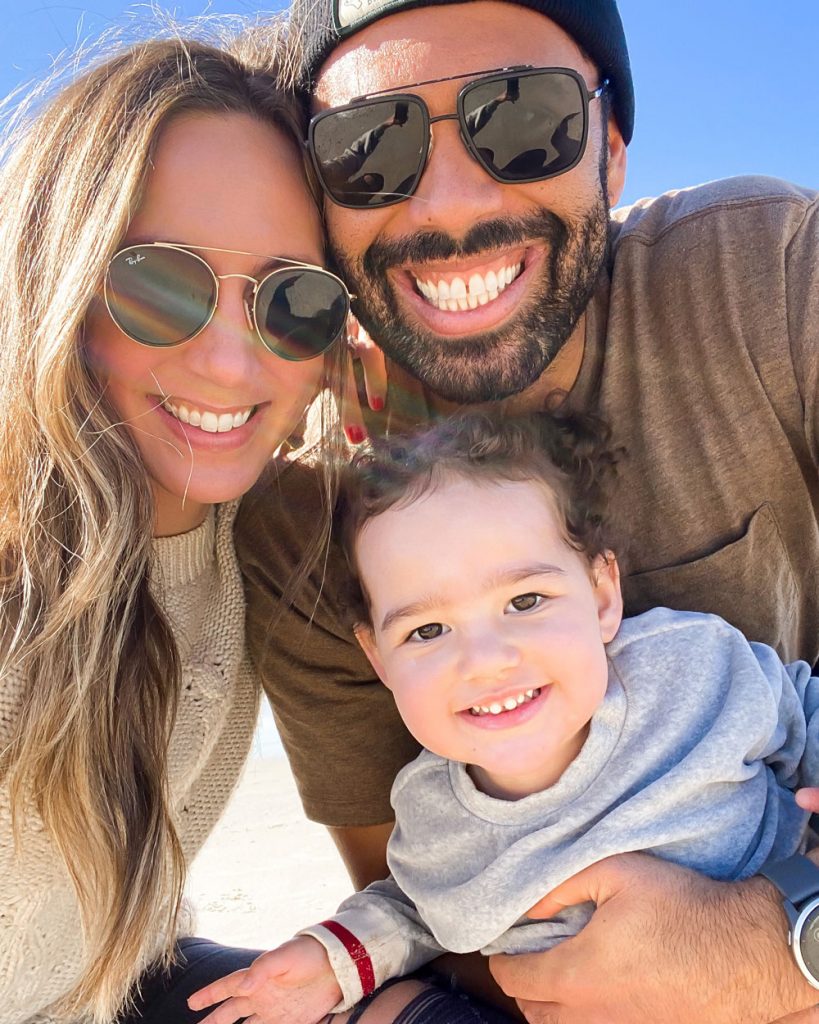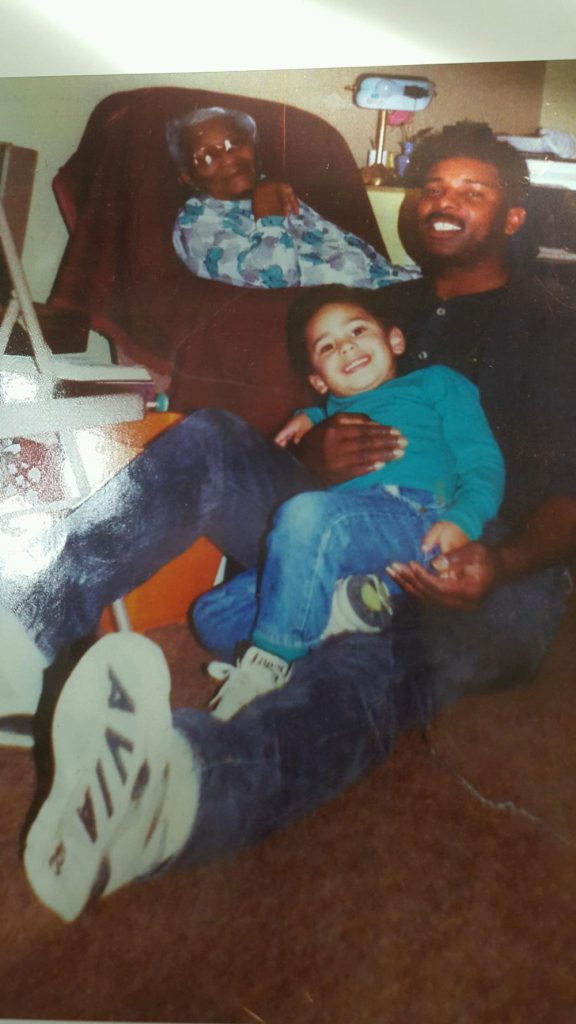Sandia manager Camron Proctor shares his story as part of the Labs’ celebration of Black History Month

As an African American, I am conflicted as I look back at U.S. history and consider how Black people have been treated. A history of sanctioned and codified slavery, oppression, discrimination and otherness is not one that immediately fills me — or many others — with national pride.
And yet, I do take pride in our work at Sandia. Our motto is “Exceptional service in the national interest.” I genuinely believe in serving our communities and the value of our contributions to our nation and the world.
So how do I reconcile these mixed feelings? When reflecting on our shared history, I acknowledge the bad while seeing a country and institutions grappling with history and some doing the hard work to better align reality with our values. I think about my family’s commitment to personal excellence and service to the nation. My enduring hope is that our collective efforts are contributing to creating a better future.
Family values: Lifelong learning
Education was a big deal in my home growing up. Academic excellence was THE path to elevating yourself, your family and your community. The value of hard work and high achievement was impressed upon us very early: If an A-, why not an A? If an A, why not an A+? And if an A+, is your room clean?
My mother is bright and graduated from high school early, but no one strongly encouraged her to pursue college. Despite the Supreme Court’s Brown v. Board of Education ruling in 1954, my father grew up in Arkansas attending segregated schools — until 1969 when he finally attended a newly integrated high school. He too graduated from high school early. Searching for better opportunities than in the divided South, he then moved to California and joined the Marines.
Although my parents did not attend four-year universities or receive degrees, they continuously demonstrated hard work and stressed the importance of not squandering opportunities you are given. Both said more educational opportunities were available to them than to my grandparents, and certainly more educational opportunities were available for myself and my siblings. The three of us have five graduate degrees: three master’s degrees and two doctorates.
My father’s paternal grandmother lived to be 102 and exemplified our family’s value of lifelong learning, even taking classes in her nursing home. She raised her hand one day and corrected the instructor, “That’s not how it happened. I was there.”
A career journey inspired by service
One unassuming September morning, I was eating Corn Pops as I watched the second tower fall. Even as a 12-year-old, it was clear to me that this was not an accident. The United States was under attack, and in that moment, I resolved to become a fighter pilot.

Despite attaining the necessary grades, I realized that my height — and my penchant for motion sickness — would preclude this dream. You know what they say? If you can’t fly ’em, build ’em. Thus, I pursued a career in aerospace engineering instead. In graduate school, I focused on optimization research with an eye toward turbine design.
To be honest, I had never heard of Sandia, but after connecting with one of my advisor’s former students, Rad Bozinoski, I completed two graduate internships at Sandia before being hired and finishing my doctorate in engineering. I started my career at Sandia in the Weapons Engineering Rotation Program, which gave me an opportunity to contribute in areas of analysis, systems analysis and systems engineering.
I loved working at Sandia — the people, the projects and the community. However, I kept wondering about aerospace engineering. In 2021, an opportunity arose to move my family to San Diego (HOME!) and explore aerospace engineering at a consulting firm. It was there that I deepened my knowledge about organizations, strategy, speed, execution and how to work well with customers in a high-stress environment. I also finally contributed to a real propulsion system.
In August 2022, I returned to the Labs, ready to learn another new skill set as a manager. Sandia’s hybrid work environment has enabled my family to stay in San Diego. Watching my parents interact weekly — or even daily — with my daughter is a true blessing.
A shared history of exceptional service
Much has changed since that September morning, and my understanding and love of country have become more nuanced. Before accepting the Sandia manager position, I reflected on my role in supporting the Labs’ mission. Considering everything I’ve learned in books (engineering and history) and life (as a student, Sandian, consultant and especially in the summer of 2020), I asked myself, “What is my anchoring motivation for serving the nation?”
At that point, it had been more than 20 years since the 9/11 event that sparked my desire to serve. I had also grown up listening to my family talk about their service: the Marines for my father and two uncles and the Navy for two aunts and my maternal grandfather. I was raised with passion and pride for our country, and my desire to serve has guided my education and career. But as I’ve grown and learned more about our shared national history and how it has affected my family, I have developed my own passion and pride.
I stood at our biannual (pre-pandemic) family reunion and retold the heartbreaking story of how an ancestor, the youngest boy, was sold away from his family at four years old and never saw them again. Despite knowing that this experience was no aberration, but rather a fundamental tenet of an institution that formed our nation’s financial foundation, I still want to serve. I serve because nearly 100 years later — almost by chance — that sold-away child’s descendants found the descendants of his siblings and came together to create our current reunion. The nation has progressed.
This progress did not just happen. It is the result of consistent and concerted effort — sometimes through education, building the credibility required to have a seat at the table. More often, progress is achieved via the small and large risks taken by so many to build a better place in a country where they may have felt unwelcome. Ultimately, progress is attained through those — of all ethnicities and backgrounds — willing to do the work to improve upon yesterday for a better tomorrow.
I see a parallel in our work at Sandia. It is filled with innovation and progress. In our culture, I see leaders committing to being more thoughtful, more vulnerable, more open and more willing to make our company better for more people. If I squint, I can even see the nuclear weapons that my department supports as being an analogue. We are in the midst of a significant modernization and improvement process for our deterrents — again, progress.